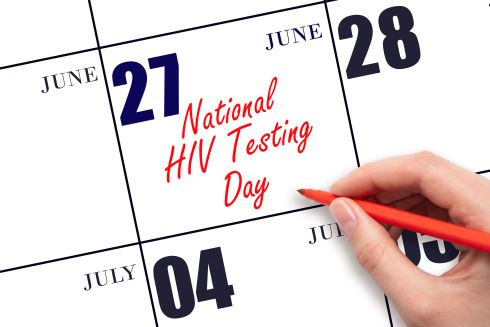Lou Portero
Articles by Lou Portero
Lou PorteroColorectal Cancer | July 1, 2025
Patients with colorectal cancer and a history of cannabis use disorder had a more than 20 times higher risk of mortality.Lou PorteroObesity | June 29, 2025
Weight management in older adults requires a fundamental shift from traditional weight-loss approaches.Lou PorteroPsoriasis | June 28, 2025
Men with testosterone levels below 300 ng/dL showed a nearly threefold increased risk of psoriasis.Lou PorteroMenopause | June 28, 2025
The findings challenge common assumptions about aging and sexual function.Lou PorteroADA 2025 | June 27, 2025
The findings suggest that approximately one-fifth of Americans who consume diet drinks may benefit from this substitution.Lou PorteroReproductive Health | June 25, 2025
A Swedish national study provides new evidence for graduated neonatal risks associated with advancing maternal age.Lou PorteroManaged Care | June 24, 2025
Fifty major health insurance companies have committed to comprehensive reforms of their prior authorization processes.Lou PorteroHIV | June 23, 2025
People can get it privately and discreetly, set it and forget it, and not have to think about it until six months later.Lou PorteroReproductive Health | June 22, 2025
This research addresses a critical gap in prenatal care, as some women develop preeclampsia despite aspirin prophylaxis.Lou PorteroDiabetes | June 22, 2025
The results support that circadian misalignment, rather than meal-to-sleep interval, underlies the adverse glucose effects.Lou PorteroWomen's Neurology | June 21, 2025
Sleep disturbance commonly triggers migraine attacks in the predominantly female patient population.Lou PorteroWorkforce News | June 21, 2025
The exodus from independent practice represents more than statistical change—it reflects fundamental economic pressures.Lou PorteroPublic Health | June 18, 2025
General Mills quickly followed suit with its own commitment to remove certified colors from all US cereals and school foods.Lou PorteroPancreatic Cancer | June 16, 2025
The study revealed significant risk increases with higher alcohol consumption levels. Compared to minimal drinkersLou PorteroBreast Cancer Wellness | June 16, 2025
The large-scale study followed over 18,000 women for an average of six years, finding that 23% showed signs of BACLou PorteroPublic Health | June 14, 2025
Nurses' direct care experiences can inform hospital strategies to improve care for socially disadvantaged populationsLou PorteroAutoimmune Disease | June 11, 2025
Researchers examined 81 pairs of identical twins where only one sibling developed MS.Lou PorteroWomen's Neurology | June 10, 2025
ADHD status, female sex, and younger age are potential risk factors for prolonged recovery from sport-related concussion.Lou PorteroFemale Urology | June 9, 2025
The researchers propose that consuming seasoned foods may expose vulvar tissue to allergens through excretion in urineLou PorteroAI in Medicine | June 9, 2025
More efficient regulatory reviews could help bridge the gap in healthcare access by bringing essential medications to market  © 2025 Mashup Media, LLC, a Formedics Property. All Rights Reserved.
© 2025 Mashup Media, LLC, a Formedics Property. All Rights Reserved.




















